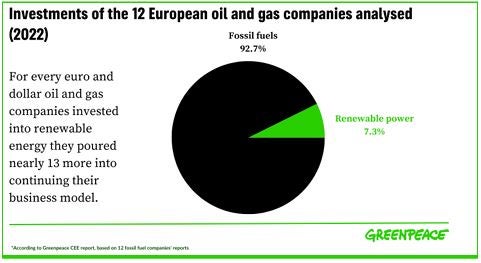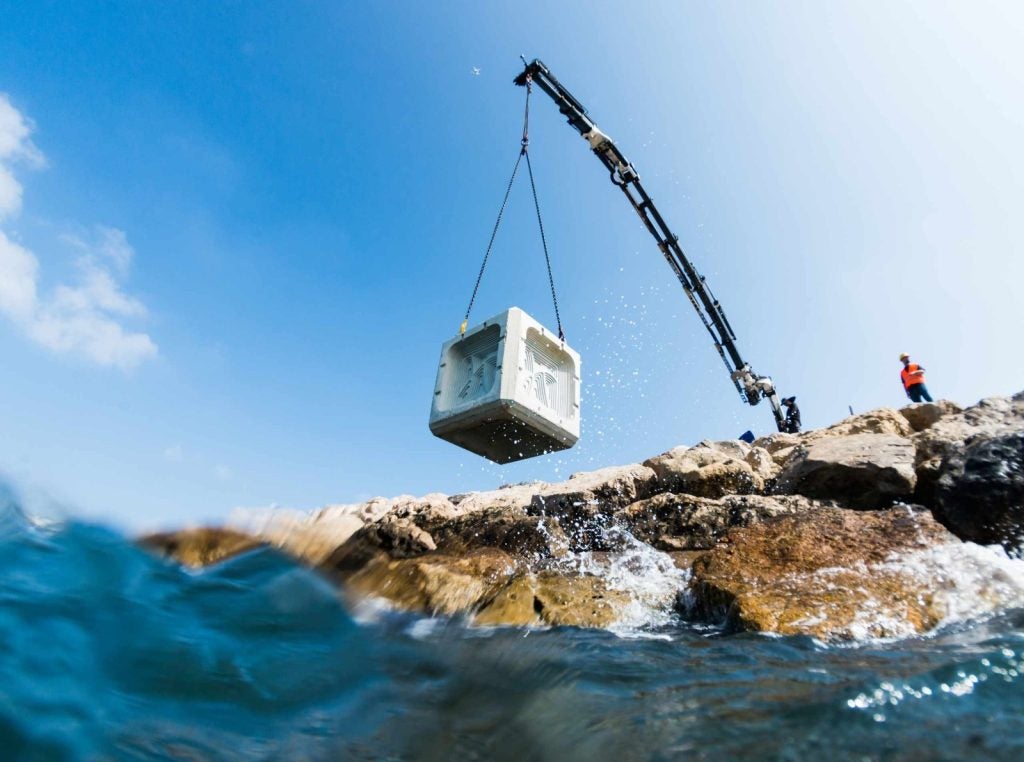European oil and gas companies have been accused of over-emphasising the role that renewables play in their energy portfolios as research suggests that renewables only represent 0.3% of total energy production.
Commissioned by Greenpeace Central and Eastern Europe (CEE), the report accuses the oil and gas majors of “deceiving the public about their willingness to curb their climate-damaging impact”.
Oil market expert and report author Steffen Bukold sampled data from 12 oil and gas companies for the report, including BP, Eni, Equinor, Repsol, Shell and TotalEnergies. Most of the 12 companies have committed to net-zero pledges by the year 2050.
According to the report, "only 7.3% ($7.09bn) of the 12 companies’ 2022 investments went towards renewable energy". The remaining 92.7% ($87.95bn) funded fossil fuels.

This is despite the fact that several of the companies centre renewable investments in their advertising and public-facing content. Earlier this year, Shell had several of its advertisements banned in the UK due to “misleading” content on the role of renewables in the company’s energy mix.
The report also accuses oil and gas companies of publishing misleading information on their practices and “promoting dangerous distractions like carbon capture and storage (CCS)”.
Earlier this year, UN Secretary-General António Guterres criticised CCS as a method of greenwashing. Supporters of CCS maintain that net zero cannot realistically be reached without the wide-scale deployment of the technology.
Calls for greater regulation of Europe's energy companies
Greenpeace CEE finance campaigner Kuba Gogolewski said in a statement that the results of the report demonstrate that European oil companies are “incapable of self-regulation”. He called for greater regulation from European governments including “compulsory investment in genuinely green infrastructure”.
He also suggests that “governments must also agree on a detailed roadmap to phase out oil and gas across Europe, starting with measures to shift heavily polluting oil and gas sectors like transport”.
The report identifies a lack of strategy as a key finding. Despite net zero commitments, "not a single one of [the 12 companies] has developed a coherent strategy to achieve this”.












